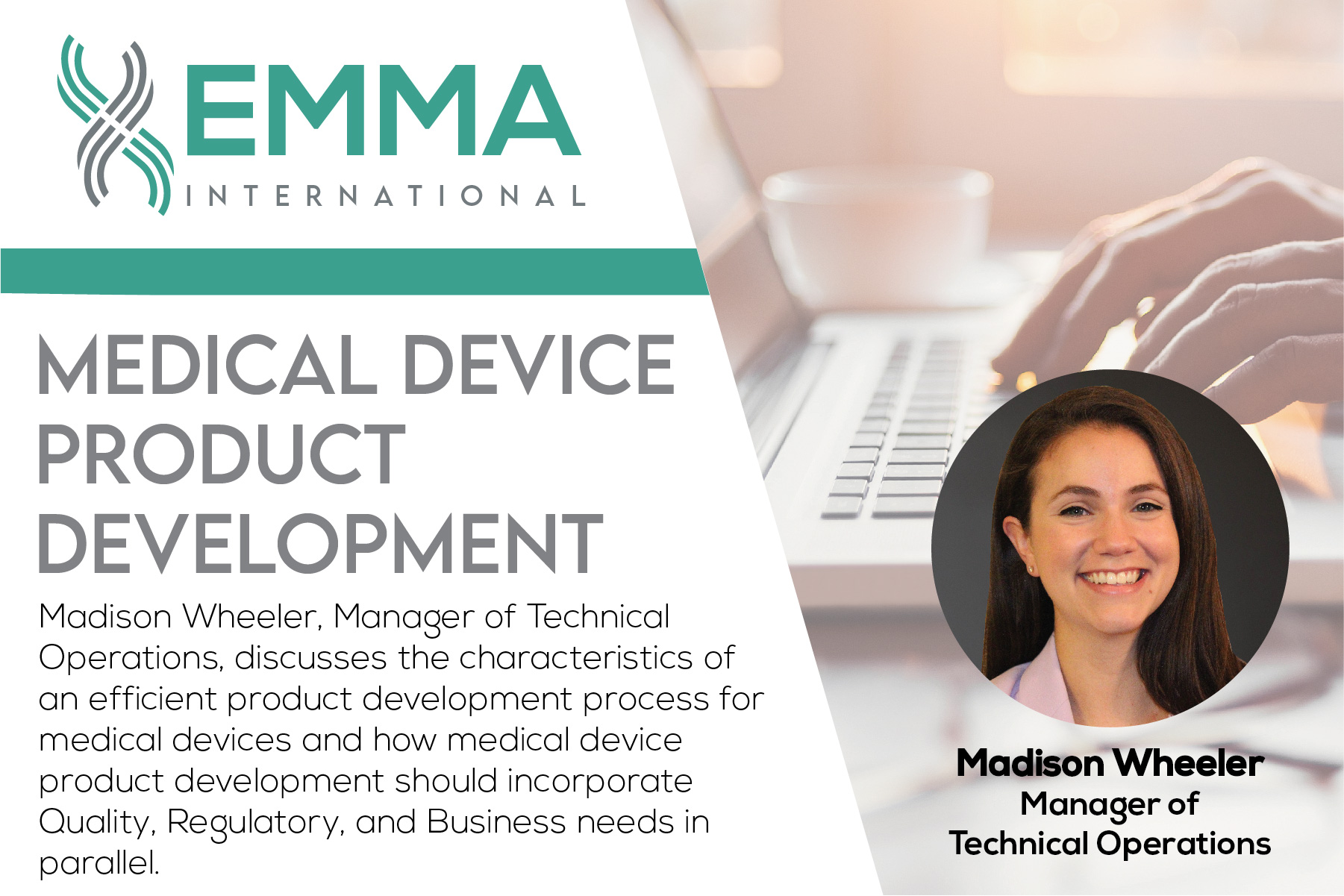Madison Wheeler, Manager of Technical Operations, discusses the characteristics of an efficient product development process for medical devices and how medical device product development should incorporate Quality, Regulatory, and Business needs in parallel.
Director of Technical Operations - Mrs. Green serves as EMMA International’s Director of Technical Operations. She has experience in technical writing, nonconforming product management, issue evaluations, and implementing corrective and preventative actions in the pharmaceuticals and medical device industries. She has experience cross-functionally between R&D, lean manufacturing operations, and RA compliance. Mrs. Green also has academic and work experience with human health-risk engineering controls, physiological biophysics, and clinical research. Mrs. Green holds a Bachelor of Science in Biosystems Engineering with a concentration in Biomedical Engineering from Michigan State University. She is also a Certified Quality Auditor (CQA), and is currently pursuing her M.S. in Quality Management.






